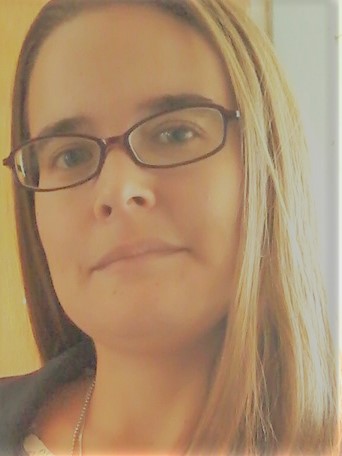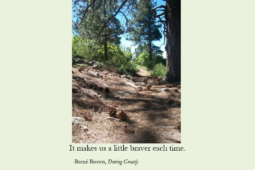Do we need complete clarity before acting on something? This way of thinking seems smart. If we think of everything we are prepared for anything. Yet, this need to have everything figured out can actually hold us back.
From discouraged to coping.
When thinking about my career path, I used to think in the way mentioned above. I wanted to have a crystal clear path towards a perfect for me career, but I could never picture it. “What do you want to do?” was an incredibly frustrating question. I was trying to answer with the end goal in mind. When I didn’t have a clear end goal I ended up discouraged.
Now when people ask me what I want to do, I have several possible answers. While the steps are not 100% clear, I am hopeful. Even though I don’t have it all figured out, it’s okay. I am learning to cope even when I don’t know the end goal.
Instead of feeling discouraged because I don’t have it all figured out, I am learning to see each career related decision as a path that opens my vision to where I should go next. I take each step in hopes that my clarity grows. I found Jenny Blake’s book Pivot helpful for developing this focus on one step at a time (you can find great pivot resources here).
I am learning to use 2 coping skills for a lack of clarity.
2 ways to cope when you don’t know the end goal:
Be where you are. It is very easy when you dream of doing something else to focus on that dream, or to focus on anything other than where you are. This makes things worse. The most depressed days of my career search were those days where I let myself get caught up in the struggle of not wanting to be where I was, but not knowing where I wanted to be.
The first thing I would tell someone who is struggling with clarity and not liking where they are is to focus on what is good about your current job and how you can enjoy it while you are there. If you want help navigating the change situation while still showing up where you are, read Jon Acuff’s book Do Over (you can find his books here).
This is a great resource even if you aren’t currently struggling with clarity. Do Over has great information on how to build what Jon Acuff calls a career savings account. We are all going to need to change jobs sooner or later for any of the reasons he talks about in his book. He is also really good at reminding his reader that it is important to show up where you are.
Talk about it.
When I lacked career clarity I really didn’t want to talk about anything related to my work search, because it put me face to face with my lack of clarity. Yet a common theme in the books I read to improve myself was that we need input from other people.
Sometimes others help us process a decision we are considering to see if our decision fits our goals. Sometimes others help us figure out what direction we need to go, simply by listening to us talk it out.
Talking about your lack of clarity can be freeing. The more I shared with people that I didn’t know what to do, the more I found that I was not the only one struggling with a lack of clarity.
Remember the 2 Coping Skills.
When we’re tempted to focus on the end goal at the expense of looking at what we can do where we are, let’s stop and refocus. Let’s be where we are.
When we’re tempted to hide behind our unknowns at the expense of feeling like we’re the only one’s struggling with clarity, let’s share our struggles with those we trust. Let’s stop and talk about it.
Read my post How to start creating a career plan when you lack clarity.
Do you find it easy or difficult to share your lack of clarity with others?
What do you think? Leave me a comment.



 One behavior change at a time.
One behavior change at a time.







Recent Comments